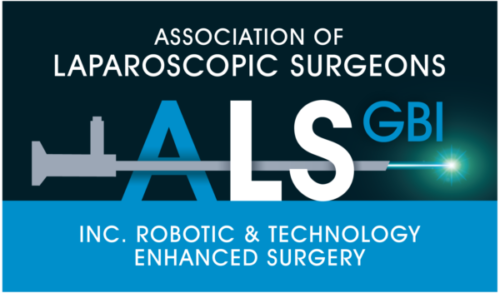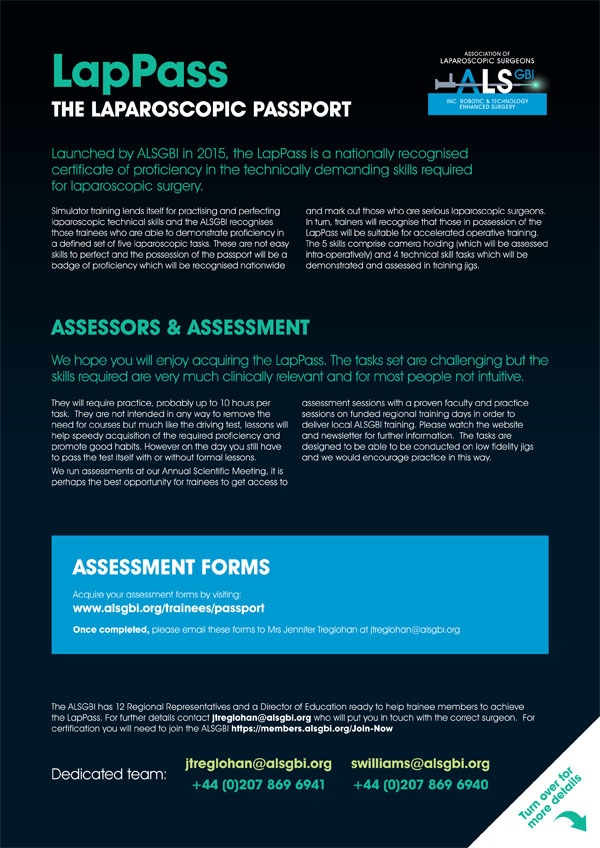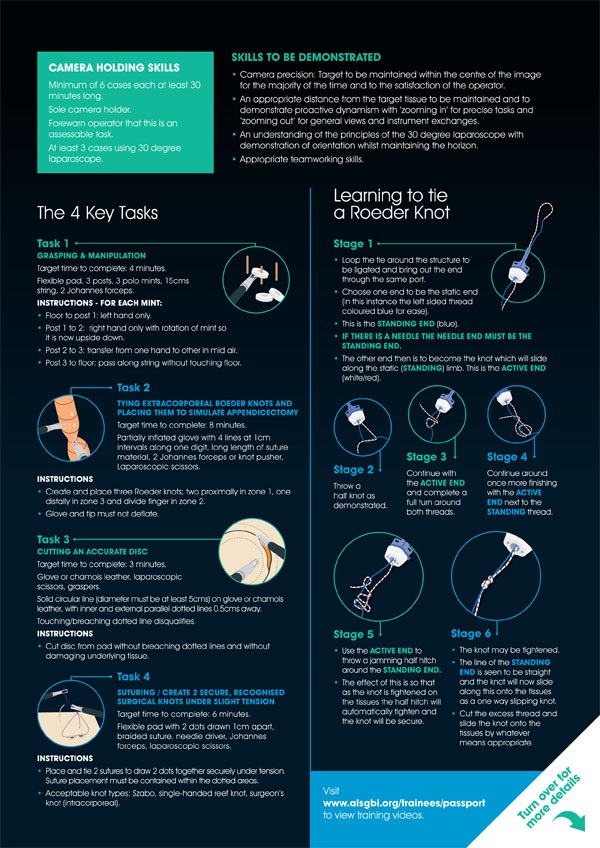LapPass 
Launched at the 2015 ALSGBI ASM in Southport in the Arthrex Mobile Training Lab
Laparoscopic surgery is technically demanding and the skills required for proficiency are difficult to acquire. It is not for everyone. However, perhaps more than for any other branch of surgery, simulator training lends itself for practising and perfecting laparoscopic technical skills and from Autumn 2015 the ALSGBI has formally recognised those trainees who are able to demonstrate proficiency in a defined set of 5 laparoscopic tasks. These are not easy skills to perfect and the possession of the passport is a badge of proficiency which will be recognised nationwide and will mark out those who are serious laparoscopic surgeons. In turn, it is anticipated that trainers will recognise that those in possession of the LapPass® will be suitable for accelerated operative training. The 5 skills include camera holding (which will be assessed intra-operatively) and 4 technical skill tasks which will be demonstrated and assessed in training jigs.
LapPass® aims to provide trainees with the opportunity to improve their laparoscopic skills, and ultimately assess them in being competent at the LapPass® tasks. This certification serves as an indicator of trainees’ capabilities and skills, allowing them to prove their level of proficiency to supervisors as they move around hospitals or regions. The LapPass® group are working towards rolling out LapPass® internationally, setting up courses across the country and nationwide; ensuring it is accessible, standardised, affordable and consistent.
Click here for a list of members who have passed the LapPass® skills assessment
Click here to read about the experience of the first person to pass



